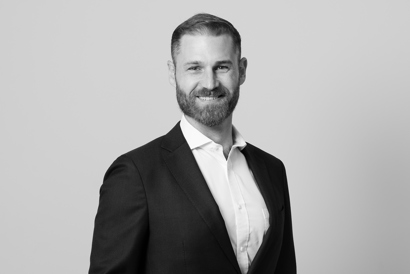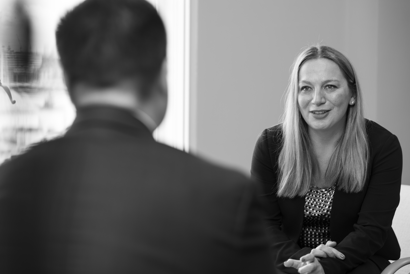As part of our launch of The Equity Project, Burford is honored to be joined by a group of outstanding lawyers and legal industry leaders who as Equity Project Champions are helping us bring attention to the need to provide economic incentives to help close the gender gap in law.
In September 2018, we interviewed some of our Equity Project Champions. We will share excerpts from their interviews and comments in a series of five posts.
We’re grateful to these and all of our Equity Project Champions for their invaluable support as well as their willingness to share their perspectives in their limited time.
Carolyn Lamm, Partner, White & Case
The Honorable Katherine B. Forrest, Partner, Cravath, Swaine & Moore
Dr. Nadine Herrmann, Managing Partner and Chair, EU and German Competition Law Practice, Quinn Emanuel
Nicole D. Galli, Managing Partner, Law Offices of N.D. Galli; Founder and President, Women Owned Law
Sue Prevezer QC, Chair, International Trial Practice, Quinn Emanuel
Roberta D. Liebenberg, Senior Partner, Fine, Kaplan and Black
Tara Lee, Co-Chair, Transnational Litigation Group, Quinn Emanuel
Alan Bryan, Senior Associate General Counsel, Walmart
The Equity Project is intended to provide an economic incentive for change. In what ways have you seen economic incentives work to drive change?
Nicole Galli: With Women Owned Law, I’ve essentially tried to grow competitors—we strive to promote women-owned firms. So one of the things I like about The Equity Project is its broad nature. It’s looking at women-owned firms, women originators, women who lead; it’s going to be tapping into a number of ways the women who might be funded have achieved some measure of success. The Equity Project can help transform the dynamic of the legal industry, and ensure we grow business for women, whether it’s in a large firm or a smaller firm. It’s an important mechanism and hopefully will serve as an example of what the business community as a whole can do differently to support women in law.
Sue Prevezer: The fact that through Burford Capital, there is now a fund of money is now available to women only increases women’s selling power. It will also incentivize women to go and get work in—possibly on projects that men may not focus on.
Tara Lee: Honestly, I am thrilled with Burford’s idea behind The Equity Project. No incentive is more powerful in my experience than an economic one. And nothing in this world moves the ball downfield faster than a good idea with money behind it! This is an idea whose time has come.
Roberta Liebenberg: Perhaps the most effective means of creating a level playing field for women is for clients to exercise their considerable economic clout and leverage with their outside law firms to help ensure that the women attorneys working on their matters are receiving origination and billing credit, serving as first chairs at trial and leads on deals, and are also meaningfully included in client succession decisions. Clients are increasingly insisting upon diversity in the teams that represent them. Corporations like Microsoft, Walmart and Accenture are tracking who is participating on their matters; what role women attorneys are playing; and who is being designated as the relationship or billing partner. Hewlett Packard is going one step further and taking business away from law firms that fail to meet its diversity goals.
Alan Bryan: The “power of the purse” is enormous. There is no greater persuasion tool that a client has with a law firm. In environments where “nudges” are not working or are not being implemented, purposely or otherwise, then it is time to turn to the power of the purse.
The Equity Project is doing just that by earmarking legal spend specifically for women lawyers. The Equity Project is utilizing fiscal capital—the same found in corporate client budgets—to underwrite hiring women lawyers in commercial matters and leveling the playing field for women in private practice. Firms should not hesitate to place women in lead roles to begin with, but The Equity Project process takes expense and risk away from law firms that take a chance on women litigators. It also gives women lawyers leverage to generate new business for the law firm. The Equity Project touches on business development, experience, power and leadership within firms, and client succession. All of these have been areas where women have not always had, and often today still do not have, certain advantages of their male counterparts.
Various studies have suggested that greater workforce diversity improves the bottom line. As part of The Equity Project, we will gather data about whether women-led litigation results in more efficient outcomes for clients. Beyond this, what kind of data would you like to see about the bottom-line impact of women in law?
Sue Prevezer: There is a sense that women-led litigation will reach a successful resolution more frequently without ending up in Court—as this project progresses, it would certainly be interesting to find out the costs savings by having women-led litigation.
Nadine Herrmann: The number of female full equity partners (as opposed to mere salaried partners and excluding part-time partners) is a very important figure. If available, the average annual compensation of a firm’s full equity female partners (compared against the average compensation of male full equity partners) would also be interesting. At the associate level, I would look at annual bonuses paid to male and female associates. These bonuses are typically based on annual billable hours and lower bonuses to female associates would suggest that they may not be assigned to the most intensely fought cases with corresponding disadvantages further down the line. Though a bit of a vanity thing, I would also look to the use of the name of female partners in a firm’s name.
Alan Bryan: Beyond efficiency data, I would want to delve into data on the psychology of male vs. women lawyers. How does demeanor, personality, emotional intelligence, stereotyping, past experience of a juror, litigant or judge play on outcomes when it is a male-led litigation versus a female-led litigation? I think much of societal and the legal profession’s inequities come from subjective places within the human psyche. Could anyone prove that male lawyers are better than female lawyers? Of course not, because it’s a complete fallacy. But in the mind of one predisposed to believe in the inequity? That is where these gender gaps start
to emerge.
Roberta Liebenberg: There is research by DOAR Consulting demonstrating that women lead trial counsel are more favorably received by jurors, which is significant given the fact that most juries are comprised of a substantial number of women. Research by Acritas also shows that diverse legal teams outperform non-diverse teams. Therefore, The Equity Project should consider gathering data which tracks the results of cases where women served either as lead counsel or otherwise played a significant role. Also, it would be illuminating to obtain information concerning the financial performance of firms which either have women serving as chairs or have substantial numbers of women on the firm’s management committee.
Nicole Galli: There is a recent study conducted by the analytics firm Premonition AI that found that at every level of practice, women litigators were actually more successful when they went to court and tried cases. The question is, why would that be the case? Is it because women only went to court if they really thought they were going to win? Or are we better prepared? To me, it would be interesting if you captured intermediate data, so not just data on case outcomes, but data on process and success along the way.
I think it could also be valuable to look at efficiency, in terms of how much litigation costs and again drilling down on those costs. In practice, I’ve seen numerous ill-conceived motions or at least ones that wouldn’t materially advance the ultimate outcome of the case and probably were not worth the extra expense. There aren’t many women in my area, so I can’t really speak to whether it’s actually a gender thing; perhaps the lawyers are simply arrogant, maybe they are unclear on what will advance the end-game, or are just trying to run up their clients’ bills. Alternatively, maybe their client is pushing them to take certain positions that the lawyers may know will not be successful (albeit permissible from a Rule 11 perspective), but for any number of reasons they don’t push back on the client. Given the economic incentives in firms, it could be any of those things. So, I’d be curious as to why certain decisions are being made or not.
Continue Reading The Equity Project Roundtable Q&A
Part I • Part II • Part III • Part IV
To read the full roundtable, download the Autumn 2018 Burford Quarterly.




